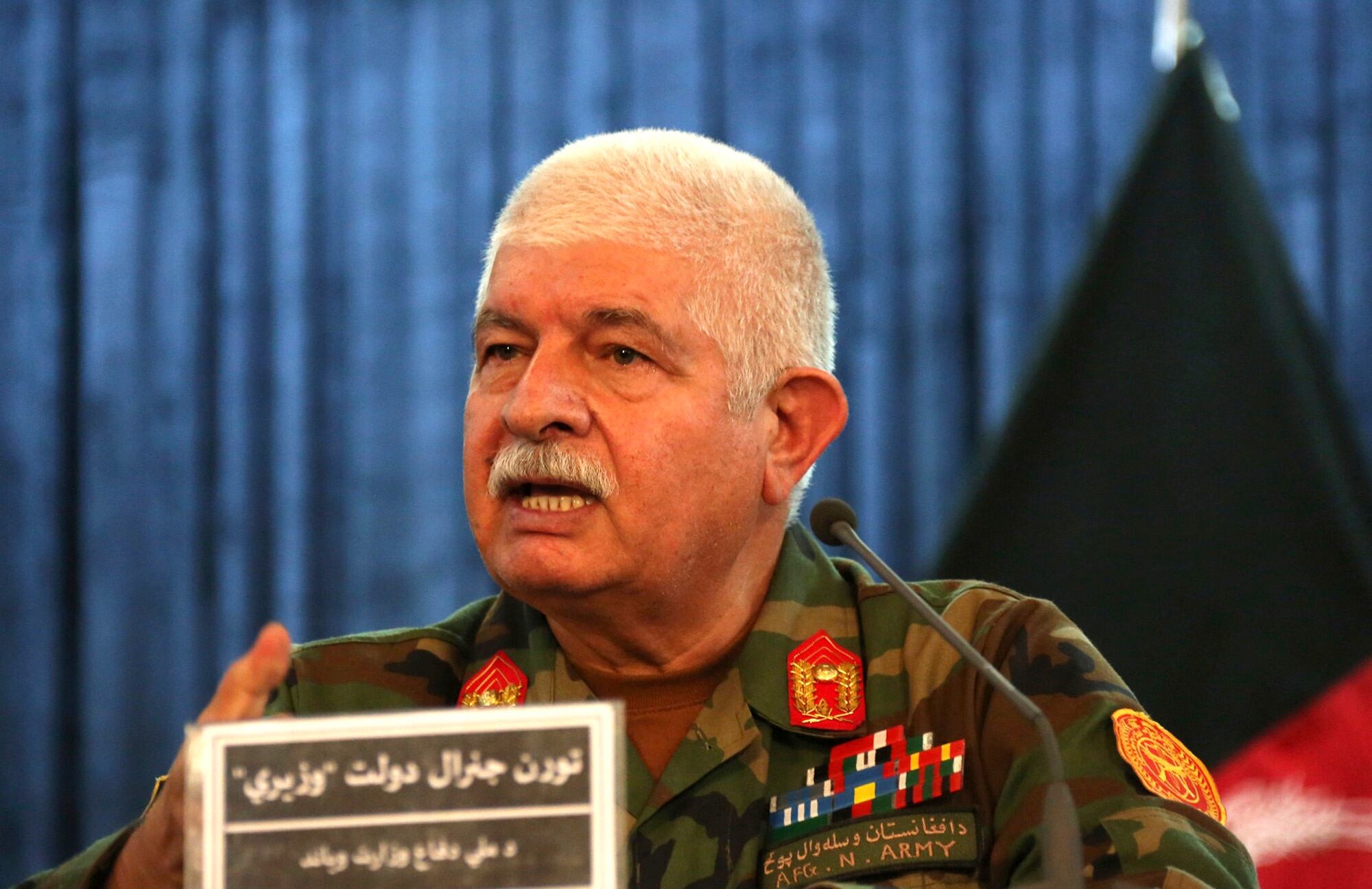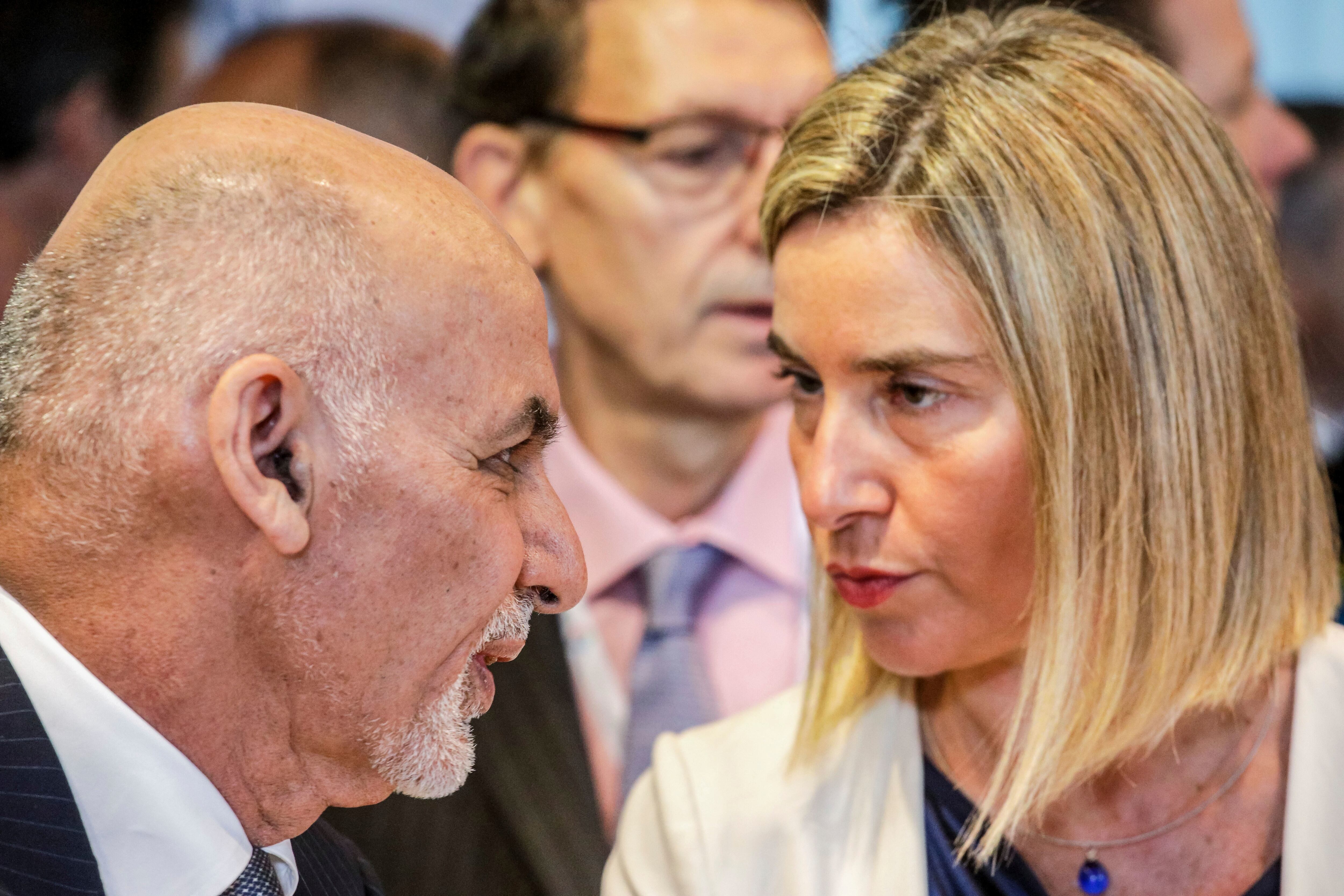As residents fled the fighting, the city hospital was rocketed a number of times. The hospital sits on the front lines of the fighting, trapped between government forces to the east and Taliban to the west, said its director Marzia Salam Yaftaly. The rockets landed on the second floor, destroying the hospital's stock of medicines, which were already in short supply. It was not immediately clear who fired the rockets.
The attack revived memories of the Oct. 3 strikes on a Doctors Without Borders-supported hospital in Kunduz that killed 42 people. The U.S. said the attack was a mistake and that administrative punishments would be handed out to the personnel responsible.

Gen. Dawlat Waziri, spokesman for the Afghan defense ministry, speaks during an Oct. 4, 2016, press conference in Kabul, Afghanistan.
Photo Credit: AP
Afghan Gen. Qasim Jungalbagh, the provincial police chief, said Taliban gunmen launched fresh attacks in Kunduz from the south and east early Wednesday. He said "clearance operations" had begun inside the city but that heavy clashes continued on the outskirts of the city.
Also Wednesday, the Taliban began forcing people from their homes in an effort to start an exodus from Kunduz comparable to a year ago, when half the population of around 300,000 fled the city. "People are leaving everything behind and fleeing to the nearest place they feel safe" said Mohammad Yousuf Ayubi, the head of the provincial council.
Since pushing into Kunduz on Monday and briefly hoisting their flag at a main intersection, the Taliban have been pushed back but their fighters remain hunkered down in residential homes, slowing the Afghan counter-offensive.
The U.S. military was providing air support to Afghan forces, U.S. Army Brig. Gen. Charlie Cleveland said. However, he described the fighting as "sporadic," saying that since Tuesday night, "U.S. forces have conducted two engagements from the air to defend friendly forces." He did not provide further details.

EU foreign policy chief Federica Mogherini talks with Afghanistan President Ashraf Ghani during a conference on Afghanistan in Brussels on Wednesday. Meanwhile, Afghan forces and U.S. aircraft were battling the Taliban in Kunduz.
Photo Credit: Olivier Matthys/AP
Police chief Jungalbagh said 42 insurgents were killed and more than 25 others wounded in the battles. Earlier, the Defense Ministry said five Afghan security personnel were killed and 13 others wounded.
Among the dead, according to Mahmood Danish, the Kunduz governor's spokesman, was the Taliban's "shadow" governor of the province, Mullah Salam, who he described as a "major human rights violator." He was killed in an airstrike, Danish said.
Dr. Hamid Alam, Kunduz provincial department director, said more than 160 civilians "wounded as a result of clashes" were admitted to the city's public hospital in the past three days. He gave no further details.
Mohammad Yusouf Ayubi, head of the Kunduz provincial council, said food prices have almost tripled since the attack began and that food, water and electricity are all in short supply.
The Taliban said in a statement emailed to media that they have taken the Kunduz office of the national intelligence agency, but the claim could not be immediately confirmed and the insurgents regularly exaggerate battlefield successes.
Kunduz, a major crossroads in the country's north, briefly fell to the Taliban a year ago before they were beaten back by Afghan forces with the help of U.S. airstrikes.
Associated Press writers Lynne O'Donnell and Amir Shah in Kabul, Afghanistan, contributed to this report.



